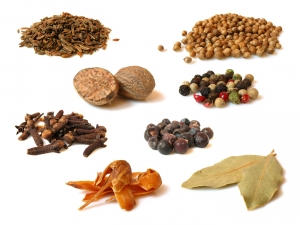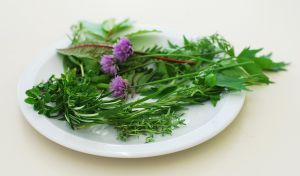Salvis Officinalis, comes from the Latin salvare, meaning to 'save' or 'cure'.
There is a proverb in an old Italian manuscript that states: 'Why should he die who has sage in his garden?'
We have the English to thank for the idea of smothering sage in onions and adding it to breads and sausage for stuffing! Who knew.
The English also drank sage tea long before black tea became the choice for this afternoon tradition. I found it very tasty.
The Secret?
Several scientific studies show that Sage brightens your mood, rejuvenates your concentration, and sharpens your memory. Perhaps that's why a sage is thus named?
Sage extract has also been valuable in alleviating or preventing:
- Age-related Memory Loss
- Alzheimer's
- Cancer
- Diabetes and
- Ulcers
Sage is native to the Mediterranean. This aromatic plant is easy to grow in many temperate climates, and will attract bees with its lavender flowers.
Clary Sage is the sweet and milder variety, Greek is stronger. Dried Sage is usually Dalmatian Sage native to Croatia, and is sold rubbed, crushed or powdered.
In Cooking:
Sage goes well in gravies, butters, stuffing, meatloaf, scones, polenta, on pizza, and with fatty fish.. like Salmon.
As a Tea:
Place 6 - 7 leaves in 9 oz of water and simmer for 15 minutes.
Storage:
Sage will keep for up to a year kept in an airtight container, and stored in a dark, dry place.




